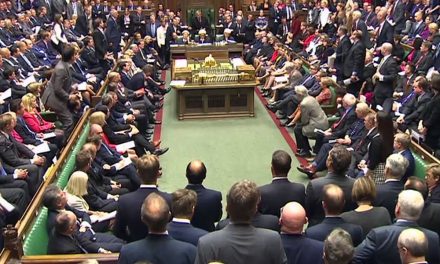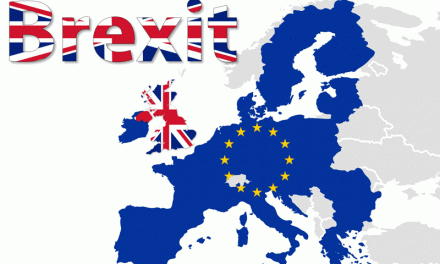The United Kingdom Internal Market Bill is going through the committee stage. During the debates, Sir William Cash made the following interventions:
Bill Cash Chair, European Scrutiny Committee: What I can say for sure is that it will not be the European Union, and that summarises the argument in a nutshell. It is something I spoke about in the debate only yesterday, where I made it entirely clear that there is one thing we have to be absolutely clear about, and this Government, as compared with the previous Administration, have made it clear. In relation to that vast range of state aids that I mentioned yesterday—they are effectively decided by the European Commission and imposed on our own companies and our own internal economic sovereignty at the moment, but we are now going to insist on retrieving them, and we have retrieved them by leaving the European Union—the position is simply this: the manner in which the European Court and the European Commission operate needs to be revised, reviewed and abandoned for the purposes of ensuring that in the United Kingdom, we have a competition policy that enables us to be able to compete fairly, not only throughout the whole world, but also in relation to the European Union.
It is well known that the question of state aids, which goes across such a wide range of matters, as I mentioned yesterday, causes an enormous amount of problems in many sectors of the British economy. We have to be able to compete effectively. We have just heard a statement on coronavirus. The damage that has come about as a result of this uncontrollable—or virtually uncontrollable—disease, which has infected so many people, affects the operations of our businesses and has created a great deal of economic dislocation. We will need to be able to compete effectively throughout the world. This is a serious matter about a serious issue. What we cannot have, as I mentioned yesterday, is the situation that we have at the moment, which is where authorisations are given by the European Commission that either create discrimination against British businesses or have the perception or the potential for doing so. They will affect the voters in Scotland—and the voters in Sheffield, if I may say so. I was brought up in Sheffield. I saw what the European Coal and Steel Community did to the British steel industry.
[Interruption.] I hear what Paul Blomfield says. The reality is that those businesses were driven out of business by, in many cases, unfair subsidies and unfair state aids that were given to other member states. I can give an example. I happened to know many people who worked at the coalface—I used to play cricket with them when I played for Sheffield—and I can tell Members that the Sheffield steelworkers, whom I also played with on occasion, sometimes it was rugger, found that they were very severely jeopardised by the massive state aids that were given to the German coal industry—it was as much as £4 billion—and authorised by the Commission. For a variety of reasons, we did not get the same kind of treatment here in the United Kingdom. This is all part of the problem of how to have fair and reasonable competition.
Alan Brown Shadow SNP Spokesperson (Energy and Climate Change): Let us come to the here and now, looking at this Bill. Say, in the future, the Scottish Government want to support the Scottish farming industry, but the UK Government have decided that, as free marketeers, they want to pool all support for their farmers. Under these proposals, is it not the case then that Scottish state aid for their farmers would be ruled illegal and they would not be able to trade in the UK internal market?
Bill Cash Chair, European Scrutiny Committee: As far as I am aware, the answer is no. The Office for the Internal Market will not be able to override decisions made by the devolved Administrations. What has happened—
We have proposed in this Bill that monitoring and advice regarding the UK’s internal market should be provided on a non-binding basis by the OIM. That will support the development and monitoring of regulation across the UK.
John Redwood Conservative, Wokingham: Will my hon. Friend confirm that the Bill says that these reports, which are not in themselves binding, are made to the Scottish Parliament as well as to the United Kingdom Parliament? Because of course, the Scottish Parliament will have enhanced powers as a result of our leaving the EU just as the Union Parliament will.
Bill Cash Chair, European Scrutiny Committee: That is absolutely right. In fact, I argue that the provisions of the Bill as a whole maintain the Union, which is absolutely essential to the future of our competitiveness internationally. I do not expect SNP Members to agree with me, but what I am saying is that I actually believe that they should reflect very carefully on the advantages that come from being part of a Union. There are so many people—our friends and relations—who come from different parts of the United Kingdom and who work in different parts of the United Kingdom. When they are doing is contributing to the welfare of the Union as a whole.
Bill Cash Chair, European Scrutiny Committee: If Euro-integrationism were to get in the way, that would be a problem, but on the question of whether the UK Government are engaged in some kind of power grab while depriving the devolved Administrations of a say, the answer to that is no, too.
(…) The Office for the Internal Market’s provisions will be available to all four Administrations and legislatures on an equal and purely advisory basis. It will provide information to support separate political or legal processes, to resolve any disagreements and to enable intergovernmental engagement. Subject only to my overriding concern that in no shape or form should we end up having a continuation of European Commission decision making, authorisation processes and the rest, which have severely inhibited our capacity to compete effectively throughout the world—and for that matter within the United Kingdom as a whole—I believe that the arrangements here will respect the devolved Administrations on the basis that I describe.
Joanna Cherry Shadow SNP Spokesperson (Justice and Home Affairs): To take the hon. Gentleman back to his comments a moment ago, when he lectured myself and my colleagues on the importance of being part of the same political union in order to trade freely and competitively, if that applies to Scotland in relation to the United Kingdom, why does it not apply to the United Kingdom in relation to the European Union? Can he explain that?
Bill Cash Chair, European Scrutiny Committee: It is a good question. In fact, I will answer it the other way: why on earth would the people of Scotland—
Joanna Cherry Shadow SNP Spokesperson (Justice and Home Affairs): No, answer my question.
Bill Cash Chair, European Scrutiny Committee: No, I am going to put it the other way around and do it my own way. Why on earth would the Scottish people, in their desire to obtain independence from the United Kingdom, actually want to surrender to the European Union, which discriminates against us day in, day out?
Joanna Cherry Shadow SNP Spokesperson (Justice and Home Affairs): I am going to answer the hon. Gentleman’s question. The Scottish National party wants Scotland to remain part of the European Union—a single market of more than 500 million consumers. The SNP does not wish to put up trade barriers with England. It is his party that wishes to enforce upon us trade barriers if we dare to exercise our democratic right of self-determination, which he has spent the last 40 years banging on about in this House for England.
Bill Cash Chair, European Scrutiny Committee: If I may say so, not unsuccessfully.
Joanna Cherry Shadow SNP Spokesperson (Justice and Home Affairs): That remains to be seen.
Bill Cash Chair, European Scrutiny Committee: I am very happy to remain to be seen and to be heard. I will give an example of a company in my constituency that, because of certain economic problems, found that it needed help and wanted some state aid and grants and things of that kind. It so happened that the company owned another company that happened to be in Ireland, and strangely enough, when it came to it and applications were made—I do not know all the details, but this is the general thrust of it—the company in the United Kingdom that needed the benefit of state aid and subsidy unfortunately did not get it, but the company in Ireland did.
The point I make is simply that it seems most peculiar to me that a system that is completely fair should have what I regards as such wanton discrimination in favour of one part of the European Union as compared to another.
(…)
I think the hon. and learned Lady is probably exhausting herself by her interventions. I gave the House but one example yesterday, on the issue of Lufthansa. There is a body of opinion and evidence demonstrating the serious discrimination that goes on, although I make the point that European Court of Justice cases on this have gone both ways. However, I think it is very important that we are absolutely clear and certain—because it affects jobs, businesses and people who work for the companies concerned—that the national interests of the United Kingdom, in our mutual interests, are reflected in the decisions taken by whatever the competition authority may be. I know that the previous Administration had in mind the idea of providing for some special reserved powers, which this Government have now decided should be displaced to ensure that we have a proper system—with proper external and internal advice that will be provided by the new Office for the Internal Market within the Competition and Markets Authority—in order to guarantee that we can be world-beating competitors. We have to be able to trade across the world as we have done.
If I may say this to the very distinguished Scottish National party Members, I am sure that they will not forget that Adam Smith was the Scotsman who defined the whole nature of free trade and the ability to compete effectively. The tradition in Scotland has always been to support the ideas of fair and free competition, and that is the essence of these provisions. I am afraid that I cannot come up with an example from Wales, but I am sure there is one. What I can say is that the objects of the Office for the Internal Market will not override decisions made by the devolved Administrations. That is my understanding, and we will hear what the Minister has to say.
There is not a power grab going on. I know that SNP Members always want to get everything for themselves— a kind of power grab in itself—so I am not terribly surprised by their amendments, but this office will be independent in its ability to give fair, reasonable and proper advice to the Government. The Under-Secretary of State for Business, Energy and Industrial Strategy, my hon. Friend Paul Scully, is here now to answer these questions himself, but it seems that the whole arrangement would make enormous sense in the post-Brexit world where we will no longer be subjected to what I regard as predatory arrangements that are built into the undemocratic system whereby those who have the ear of the internal part of the European Commission get their way so often that we are discriminated against.
We will have our own system, on our own terms, in accordance with the decision taken by the British people in the general election last December, which endorsed the decision that was made in the referendum. I do not want to go through that whole argument from beginning to end but it is relevant to this debate, because when we do leave the European Union in all its shapes and forms, we will be in a position to make decisions in the interests of all the people in the Union and with regard to the importance of the devolved Administrations. The provision for the markets authority will be a very fair way of conducting our proceedings. This will serve everybody a great deal of good and we will all benefit from it.
(….)
Bill Cash Chair, European Scrutiny Committee: How does the hon. Gentleman reconcile what he has just said with what the Scottish Retail Consortium has said, which is that protecting the UK internal market means that
“Scottish consumers” will
“benefit enormously”?
It talks about the importance of the
“largely unfettered internal single market”.
In the consortium’s view, Scotland welcomes the measures to protect the UK internal market.
Neale Hanvey Shadow SNP Spokesperson (Health Team Member): The way that I reconcile it is that I am talking about democracy and the hon. Member is talking about trade, and I would say that democracy is slightly more important than trade.
The Bill would make Scotland’s Parliament and our law meaningless and smash devolution. And what of the protestations of this Government’s man in Scotland and his self-congratulatory talk of a power surge? It is crystal clear now that the only power surging is to the CMA, to the Office for the Internal Market and to the Secretary of State in Scotland.



